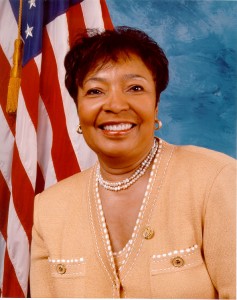 By Congresswoman Eddie Bernice Johnson
By Congresswoman Eddie Bernice Johnson
During the July Congressional recess, I participated in an international conference in Taipei, Taiwan. The conference focused on utilizing culture and faith to promote world peace. During the conference, the participants highlighted the need for interfaith conflict resolution. One thousand guests from seven different countries and various religious beliefs united to find common ground on which to build peacemaking and peacekeeping strategies.
As I reflect on this experience I am hopeful for the future, yet burdened by the growing prominence of racial, ethnic and religious conflicts that threaten not only our physical security, but the future of peace and social harmony throughout this country.
This threat was highlighted by the brutal murders of nine innocent people as they attended Bible study at the Emanuel African Methodist Episcopal Church in Charleston, South Carolina on June 17th. In the wake of this tragedy, people of diverse backgrounds came together to pray, to worship and to collectively mourn the tragic loss of life. At the urging of various faith leaders, the people of Charleston led the nation in one of the most powerful peace-building demonstrations that we have witnessed in recent history. The families of the victims shocked the world as they addressed the alleged killer with words of forgiveness and love.
As the country mourned faith leaders in Charleston and those throughout the country echoed messages of hope and stood in solidarity to denounce hatred and division. The role that faith leaders played in the wake of this tragedy is not new in our society. Faith leaders, throughout our history, have led us through transformative change. During the height of the Civil Rights movement, members of the clergy stood with Dr. Martin Luther King, Jr. in Selma and in many parts of the country during the struggle for racial and social equality. Collectively, they called for justice and awakened the conscience of America.
Recently in Dallas, pastors of two churches: one with a predominantly African American congregation, the other with a predominantly white congregation, exchanged pulpits so that their members could experience diversity in worship, and begin to build relationships as people of faith.
In another incident, members of a Muslim congregation in North Dallas worshipped with an inner-city church, telling its members that they stood in solidarity with their “brothers and sisters” during times of despair and difficulty.
As we move forward towards reconciliation, it is important to recognize and encourage the important role that faith leaders play in building a harmonious community. The prudent, hopeful and profound messages of our faith leaders are essential to the survival and growth of our society. They remind us of our shared humanity which is an essential principle for conflict resolution, and the peace-building movement that people of goodwill hunger to find and experience.








